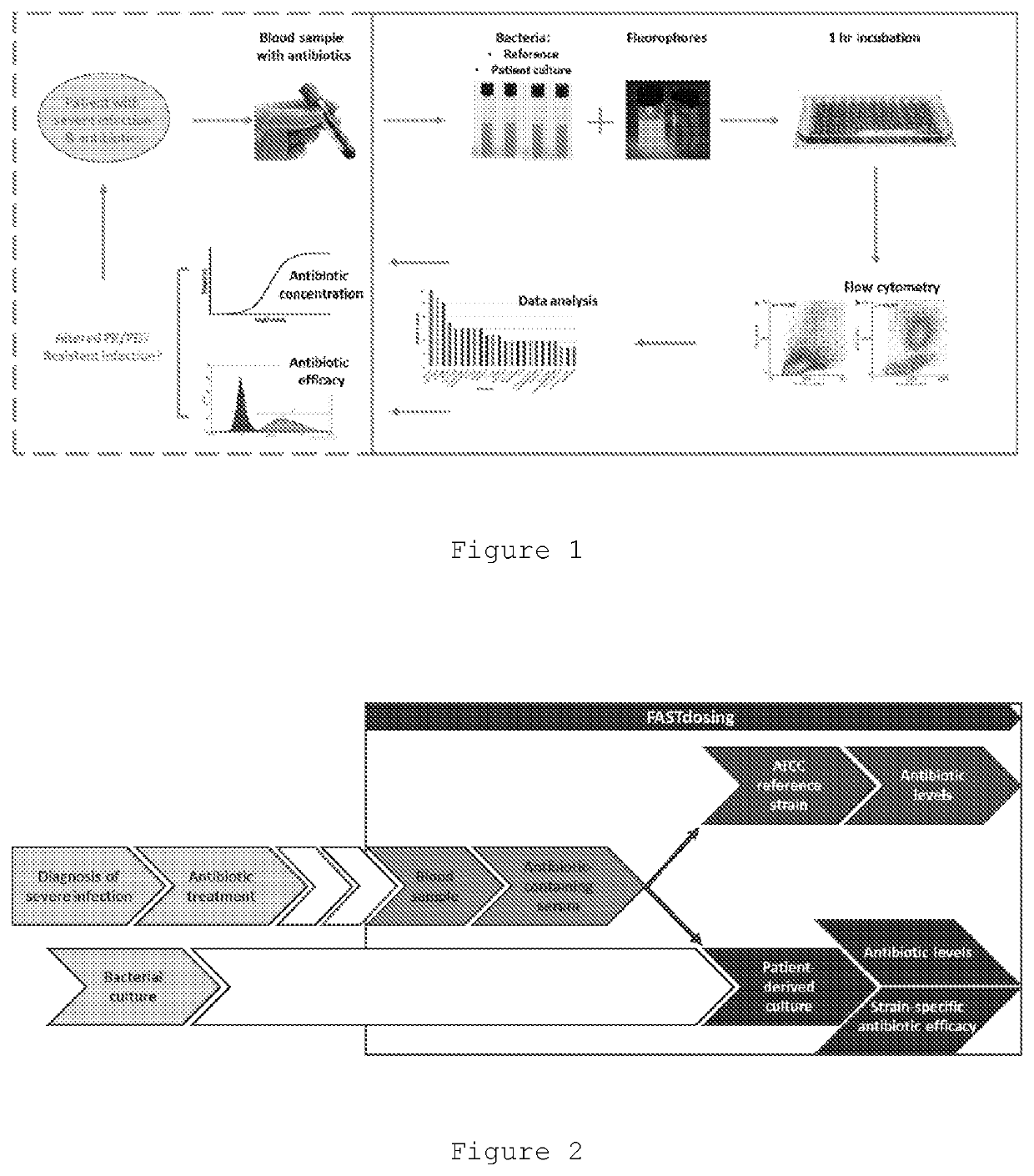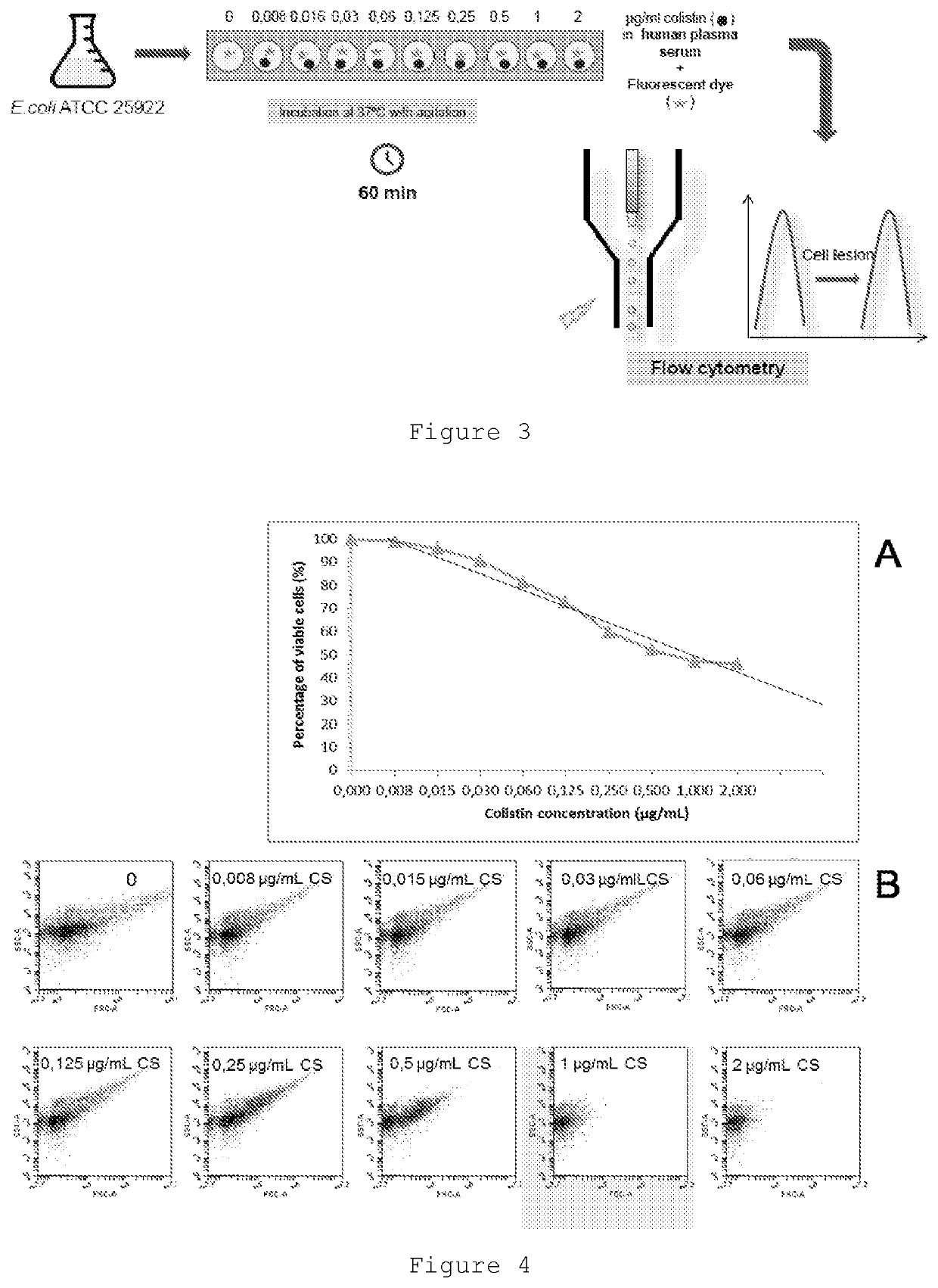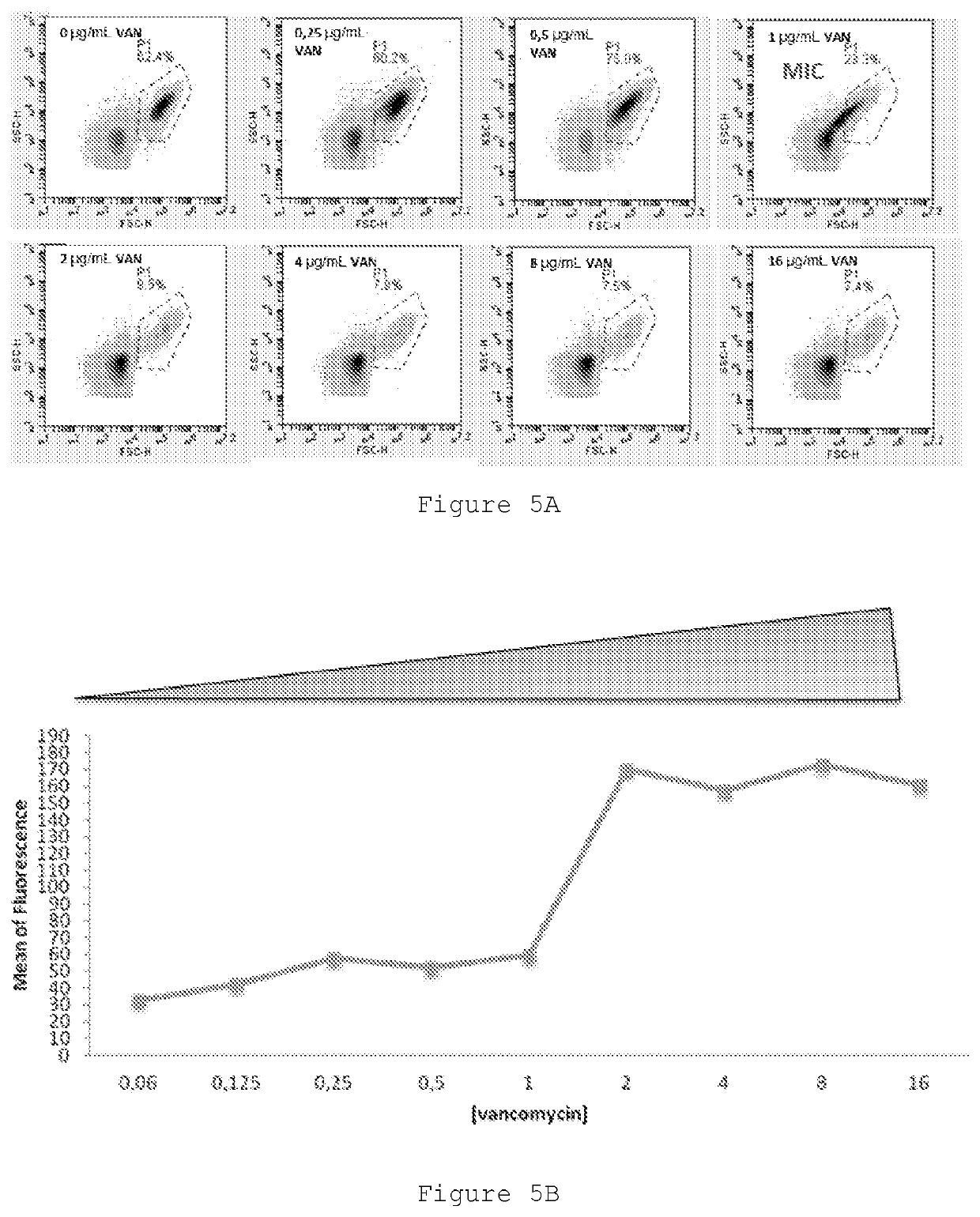Improved Therapeutic Drug Monitoring
a technology for monitoring drugs and drugs, applied in the field of improved therapeutic drug monitoring, can solve the problems of toxicity, insufficient blood levels of antimicrobials, and often insufficient normal dosage regimes
- Summary
- Abstract
- Description
- Claims
- Application Information
AI Technical Summary
Benefits of technology
Problems solved by technology
Method used
Image
Examples
example 1
ation and Measurement of the Antimicrobial Activity of Colistin
[0042]Colistin is increasingly being prescribed as a rescue treatment for infections with multidrug-resistant bacilli. Colistin is an old antimicrobial but, is at present, the only alternative against superbug strains like those producing carbapenemases, and multi-resistant Pseudomonas aeruginosa and Acinetobacter baumannii. Since its pharmacokinetics is not yet well known, it would be very useful to have the possibility to measure its antibacterial activity in each individual patient receiving it. Often, nephrotoxicity and, to a lesser degree, neurotoxicity can occur during systemic colistin therapy; such adverse side effects have severely limited colistin use in the past. However, these effects are largely reversible and can be managed through close drug monitoring. We have developed a microbiological assay in order to quantify the antimicrobial effect produced by different antimicrobial drugs using flow cytometry, inc...
example 2
ation and Measurement of the Antimicrobial Activity of Vancomycin
[0047]Vancomycin is a glycopeptide antibiotic that has been in clinical use for nearly 50 years as an alternative to penicillin to inhibit penicillinase-producing strains of Staphylococcus aureus. Despite limitations such as poor tissue penetration, relatively slow antibacterial effect, and the potential for toxicity, vancomycin is regarded as the gold standard for antibiotic treatment of MRSA infections because of its low cost and established clinical response. Due to the complexity of vancomycin pharmacokinetics and its high toxicity, the monitoring of blood level is recommended in order to obtain therapeutic success. Our research group has been using flow cytometry to evaluate the in vitro susceptibility profile of bacteria with great success, including to vancomycin.
[0048]The objective of this work was to optimize the microbiology measurement of the activity of vancomycin in the patient's blood using flow cytometry...
PUM
 Login to View More
Login to View More Abstract
Description
Claims
Application Information
 Login to View More
Login to View More - R&D
- Intellectual Property
- Life Sciences
- Materials
- Tech Scout
- Unparalleled Data Quality
- Higher Quality Content
- 60% Fewer Hallucinations
Browse by: Latest US Patents, China's latest patents, Technical Efficacy Thesaurus, Application Domain, Technology Topic, Popular Technical Reports.
© 2025 PatSnap. All rights reserved.Legal|Privacy policy|Modern Slavery Act Transparency Statement|Sitemap|About US| Contact US: help@patsnap.com



